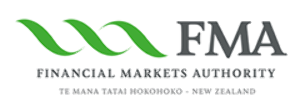FMA back in black
After five years in the red, the Financial Markets Authority has returned a surplus in its latest financial year.
Monday, October 29th 2018, 6:00AM  3 Comments
3 Comments

The FMA turned a $3.5 million deficit in 2017 into a $3.25m surplus in the 2018 year – but whether it will need more money to fund the new financial advice regime remains to be seen.
The 2018 report shows it well ahead of its budgeted $752,000 surplus - the first time it had not been in deficit since 2013.
Revenue was above budget in part due to higher than anticipated revenues for licensing and application fees, coupled with settlement funds received for the Mark Warminger case as cost recoveries.
It had budgeted for $3.8m from operating activities but received $7.2m.
The FMA has previously flagged that the move to entity licensing a much wider range of financial advisers under the new financial advice legislative framework will be expensive.
In its most recent annual plan it said one of its objectives was to achieve a smooth transition to the new regime.
Head of regulation Liam Mason said it would be a major piece of work, licensing more firms than before, and the cost was likely to be borne by government funding and the industry.
Asked whether the FMA now thinks it has the resources required for adviser licensing, and whether levies would need to be hanged for that process to happen, a spokesman said it was a question for MBIE, which is developing the licensing regime.
In 2016, it asked for an extra $9.8m a year from the government – but AFAs dodged a suggested large increase to the levy they pay.
The FMA has 90 employees earning $100,000 or more, including one individual earning between $610,001 and $620,000.
Board chair Murray Jack was paid $148,000 in the year.
In total it spends $23 million a year on personnel expenses.
| « AMP Capital links up with Resolution | Mann on a mission to diversify financial advice » |
Special Offers
Comments from our readers
Surely not.
...but the biggest joke is 90 employees and $23m on personnel expenses while the market is self-regulated for the most part.
Sign In to add your comment
| Printable version | Email to a friend |



